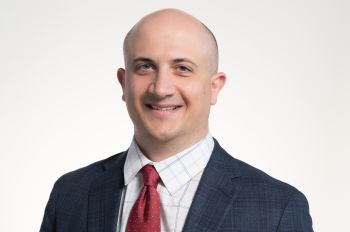IIT Shares Multi-Million Dollar Federal Grant to Boost Solar Development in Virgin Islands
IIT’s Robert W. Galvin Center for Electricity Innovation will receive a $3 million federal grant from the USDA High Energy Cost Grant Program designed to provide financial assistance for the improvement of energy generation, transmission, and distribution facilities servicing eligible rural communities. The grant will allow IIT the ability to deploy a microgrid application on the University of the Virgin Islands campus to enhance their current 3-megawatt solar installation.
Fifty-five applicants from around the US went after the $11 million USDA High Energy Cost Grant. Together, Illinois Institute of Technology (IIT) and Veriown Energy had the highest rated proposal and were awarded $3 million to apply to the project.
Expensive electricity costs have taken a toll on the Virgin Island (VI) economy. The average electricity consumer in the territory pays more than 50 cents per kilowatt-hour – four times more than consumers on the US mainland.
“Because of this grant, the University of the Virgin Islands, with the tremendous assistance of Illinois Institute of Technology and Veriown Energy and will be in a position to become energy independent in an environment where the cost of energy is extremely high. This partnership will catapult UVI into the category of the leading universities in smart microgrid technology,” said Dr. David Hall, President of the University of the Virgin Islands.
The relationship between Veriown and Dr. Mohammad Shahidehpour, a leader in advanced energy studies and microgrid development at IIT’s Robert W. Galvin Center for Electricity Innovation, blossomed five years ago after discussing the true potential of what a microgrid system could do on a campus setting.
“This grant signifies a strong synergy between the government, academia, and the energy industry for promoting the state-of-the-art research and development on sustainable energy, energy efficiency, and microgrids which can serve as a role model for advancing the United States leadership in the global energy arena,” said Dr. Shahidehpour.
According to Steve Johanns, CEO of Veriown, a university is the optimal place to develop a microgrid system, not just because of its campus setting, but because it can be an institution to foster and train our youth in innovative microgrid solutions that could change how energy is harnessed for future generations to come.
“This grant will have a real and significant impact on the total cost of energy for the University of the Virgin Islands,” said Johanns. “It should not go unnoticed that these savings allow universities like UVI the ability to put the money where it is needed the most with teachers and students enhancing learning environments.”




